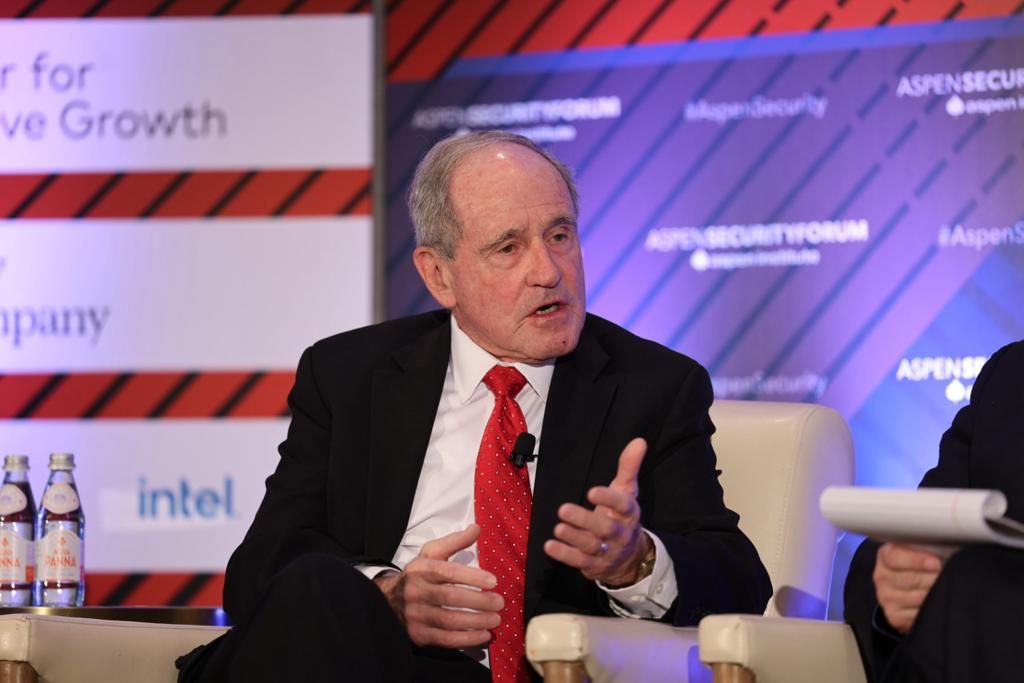Risch at 2023 Aspen Security Forum: DC Edition
WASHINGTON – U.S. Senator Jim Risch (R-Idaho), ranking member of the Senate Foreign Relations Committee, today participated in a panel entitled “The Changing Strategic Environment: Lessons and Opportunities” at the 2023 Aspen Security Forum: DC Edition. Risch was joined by General Anthony Cotton, commander of the U.S. Strategic Command, and the panel was moderated by David Sanger from the New York Times.

On the importance of U.S. nuclear deterrence:
“The nuclear deterrence of the United States is a paramount question for the national security of this country. I can assure you, I can assure the American people, that we are serious about it, that we are dedicated to it. If you hear people, particularly political people, sniping at it, don’t take that as some kind of indication that we’re weak. We are not. We are strong, we are dedicated.”
On how the world is changing:
“In my judgement, I see the world kind of dividing into the autocracies and democracies on two different sides… What I call the no-goodniks on one side – the Iranians, the North Koreans, the Russians, the Chinese, the Cubans, the Venezuelans, the Syrians, and a handful more are candidates that fall into that category. The rest of us are democracies or close thereto.”
“I think one of the greatest challenges of the 21st century is how we are able to get along and stop thinking about killing each other. We’ve got to exist on this planet together. China is not going to change. They are not going to wake up suddenly one morning and say ‘we’re going to have democracy, we’re going to have capitalism.’ Russia certainly isn’t going to do that. Iran certainly isn’t going to do that.”
On the relationship between Russia and China:
“Russia and China are not natural allies by any stretch of the imagination. They do share some things in common. They have autocratic governments, very different from our democracy. They have socialism and communism, very different from our democracy and the freedoms that we have here. But there is no great warmth and trustworthiness between these two.”
On the need to adjust the U.S. nuclear force posture:
“We made the mistake when the Berlin Wall came down thinking that Russia was going to become a normal player on the planet. They started out that way, but it’s changed dramatically – particularly in recent years. You can’t trust them.”
“These treaties are not the beginning and end. I think your reference to how we look forward and plan now that the world is a different place than it was… we’re no longer looking at a single stockpile of nuclear weapons in a peer country. We’re looking at two of those. The second one, [China], is growing rapidly, as the general referred to. That has got to be taken into consideration and recognized.”
These remarks have been lightly edited for clarity.
A video of the full panel can be found here.
###